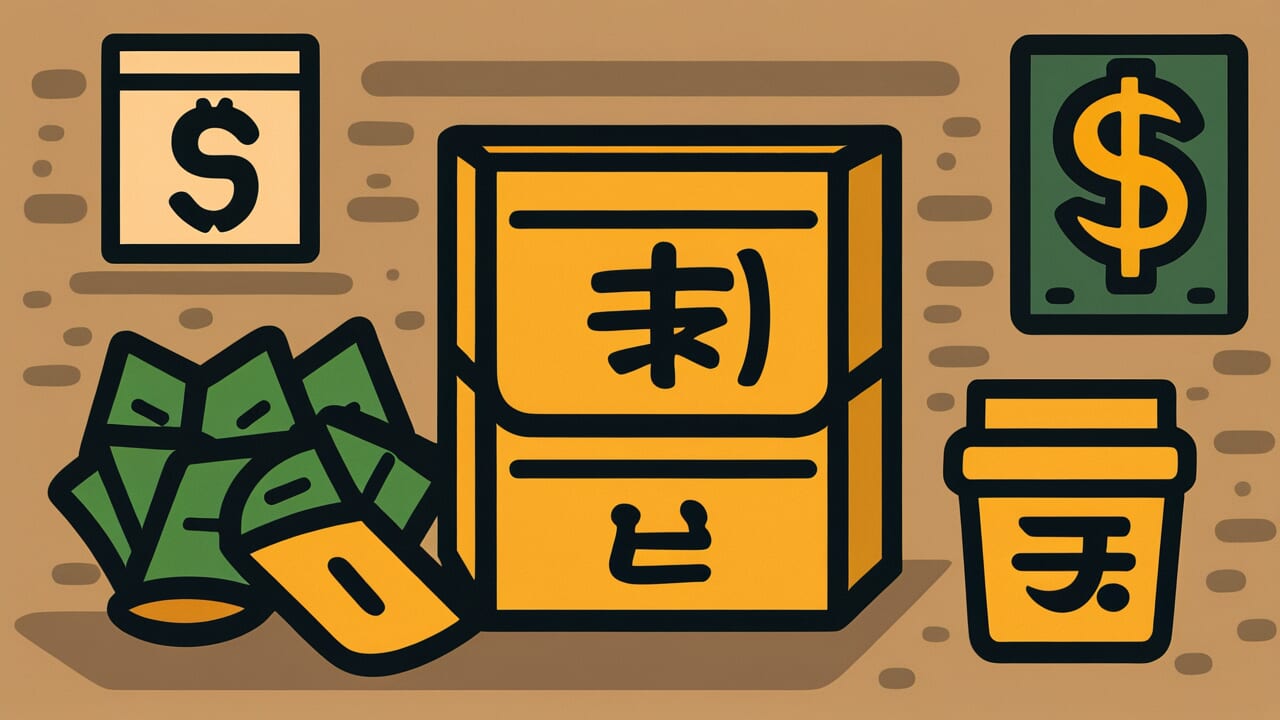How to Read “A thousand gold pieces do not die, a hundred gold pieces are not punished”
Senkin wa shisezu hyakkin wa keiserarazu
Meaning of “A thousand gold pieces do not die, a hundred gold pieces are not punished”
This proverb criticizes inequality under the law. It says that people with enormous wealth avoid the death penalty, and those with moderate wealth escape punishment altogether.
Everyone should be judged equally, but this saying points out a harsh truth. The richer and more powerful you are, the easier it is to escape justice.
People use this expression when criticizing situations where the wealthy or powerful commit obvious wrongs but face no consequences. It’s also used when lamenting unfair social systems.
Why use this specific phrase? Simply saying “that’s unfair” doesn’t capture the full picture. This proverb shows the concrete structure of how punishment changes based on wealth, making the criticism much stronger.
Even today, we often see cases where economic power and social status seem to influence legal decisions. This proverb continues to serve as a warning about such situations.
Origin and Etymology
No clear written records explain the exact origin of this proverb. However, scholars believe it was likely influenced by ancient Chinese philosophy and legal systems.
The terms “thousand gold” and “hundred gold” were widely used in ancient China to indicate levels of wealth. Thousand gold referred to extremely wealthy people, while hundred gold meant moderately rich individuals.
This expression came to Japan and became established as a way to criticize inequality in the justice system.
From ancient times through the medieval period, many East Asian societies shared a common reality. People with wealth and power could easily escape legal judgment.
This happened through bribes that reduced sentences, currying favor with the powerful, or law enforcers themselves showing consideration to the wealthy. These were structural problems built into society.
This proverb was born to sharply criticize such social contradictions. The parallel structure of “do not die” and “are not punished” expresses an ironic reality in a concise and memorable way.
It shows how punishment becomes progressively lighter depending on wealth level. The criticism of judicial unfairness from the common people’s perspective is condensed into these few words.
Usage Examples
- That politician’s corruption case ended up being swept under the rug. “A thousand gold pieces do not die, a hundred gold pieces are not punished” really says it all.
- When major corporations commit fraud and nobody gets arrested, it’s a perfect example of “A thousand gold pieces do not die, a hundred gold pieces are not punished.”
Universal Wisdom
This proverb has been passed down for hundreds of years because it perfectly captures a universal tension in human society. The tension between power and justice.
Humans naturally seek fairness. The sense that everyone should be treated equally runs deep in our hearts. But at the same time, human societies always develop hierarchies of power.
These hierarchies inevitably influence how laws are enforced. This gap between ideal and reality is a fundamental contradiction humanity has always faced.
The wealthy and powerful escape the law not just because bribes work. People around them try to protect them. Enforcers show deference. Skilled lawyers find loopholes in complex laws.
The entire social system unconsciously creates structures that protect power.
This proverb crystallizes the sharp observations of ancestors who saw through this dark side of human society. They didn’t speak of ideals. They looked at reality as it was.
By expressing its essence in a few words, they continue to warn future generations. They confront us with a heavy truth: justice is something that will be lost unless we constantly protect it.
When AI Hears This
The phenomenon where the rich get richer is actually a mathematical inevitability proven by network science. Researchers studying internet structure made a surprising discovery.
When they examined the number of links to websites, most sites had only a few links. But giant sites like Google had millions. This distribution wasn’t random. It followed a special mathematical formula called a power law.
Why does this happen? When people create new websites, they’re more likely to link to already-famous sites. A site with 100 links has ten times the probability of gaining new links compared to one with only 10.
This is called preferential attachment. The wealthy avoiding legal consequences follows the same structure. Wealth generates connections, connections generate information, and information generates means to avoid legal risk.
At each stage, new resources flow in proportion to existing resources. This causes inequality to expand not exponentially but according to power laws.
What’s interesting is that this mechanism doesn’t arise from intentional unfairness. It emerges naturally as a result of each individual acting rationally.
The same pattern appears in ecosystem food chains, academic citation networks, and city population distributions. Ancient Chinese observers grasped this mathematical destiny of social systems through empirical observation.
Lessons for Today
This proverb teaches modern people that social fairness isn’t naturally maintained. We must consciously protect it at all times.
In daily life, we unknowingly become tolerant toward power and wealth. We forgive celebrity scandals as “unavoidable.” We resign ourselves to corporate fraud as “just how things are.”
But these small compromises accumulate and solidify inequality throughout society.
What we can do in modern society is first notice the “deference to power” within ourselves. We must cultivate the ability to judge actions on their own merits, without being swayed by status or titles.
And we need the courage to speak up when we see injustice.
Your voice alone may seem small. But when many people speak up, it becomes a force that changes society.
This proverb is a word of criticism, but it’s also a word of hope. Being able to recognize unfairness means the desire for justice is alive within us.



Comments